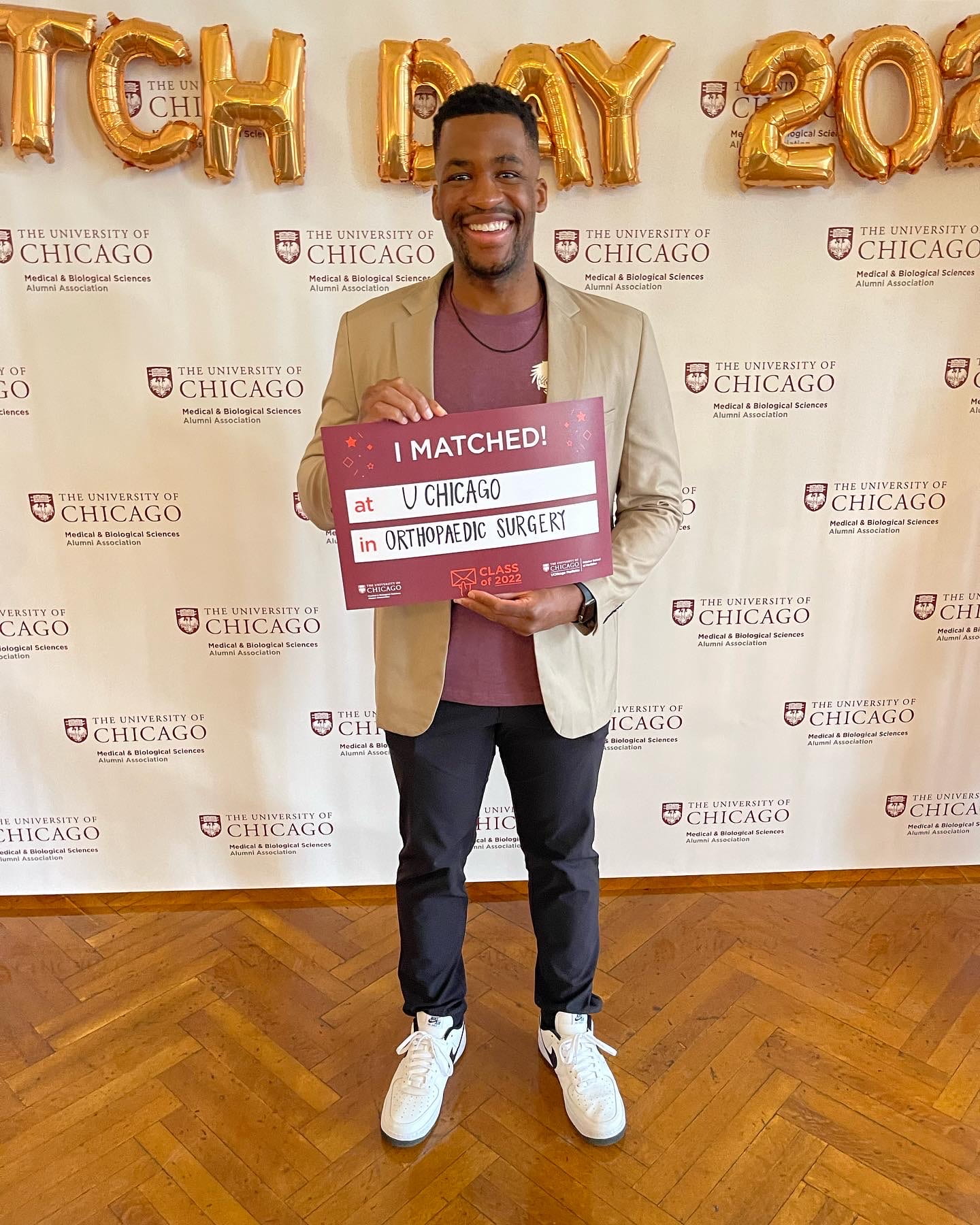2022-2023 Residency Process Book, UCM Pritzker School of Medicine
Program Director at UCM & Director of Residency Recruitment: Tessa Balach, MD
Recommended Specialty Advisors: Megan Conti Mica, MD Director of Medical Student Education
USMLE Data
Sources: UCM Program Directors and 2020 Charting Outcomes in the Match (NRMP publication)

Should applicants do away rotations?
Yes, you should complete two. You will want to do an away elective and shine there. Away rotations should be done at institutions where you really want to match and have a competitive chance of matching. We recommend doing these in the summer and early fall of your fourth year. Your orthopaedic surgery Specialty Advisor can help you determine these institutions. Apply for away rotations early (April-May) to avoid being shut out because all available spots are filled.
Research
While research is not required, it increases the chance of matching successfully. According to NRMP data, students who match successfully in orthopaedic surgery are more likely to have done research that has resulted in publication. In 2021, the average number of publications for students who matched in our program was 2.8.
*In 2019, the average was 2.6; in 2020, the average was 4.8.
Letters of Recommendation

In general, letters that come from within this specialty are most helpful. The persons reviewing your application are much more likely to know another person in their specialty. If you have done a significant research project with someone who knows your work well, and is outside of that specialty, that can also be helpful. However, in general, submit letters from orthopaedic surgeons.
Procedure for asking for a Chief's Letter
Set up a meeting with the Department chair, Dr. Dirschl. He will typically get feedback from faculty members who are familiar with your work.
Personal Statement
Personal Statements Be honest and direct. Do not be too short (only one paragraph) or too long (more than one page). Avoid using poetry or excessive use of quotations. A good personal statement gives the reader insight into the candidate’s background and personal story.
Application Timing
Programs begin reviewing applications after the MSPE is released in September/October. Programs begin offering interviews mid- November (Orthopaedic Surgery has a Universal Interview Offer Day (UOD) that > 85% of programs participate in).
Interview Advice
It is best to do your homework and find out the highlights, or strong points, of the program. You will inevitably be asked why you are interested in that program. Show that you spent time looking at the program’s web site and ask about specific features of the program. Avoid generic answers like, “I heard this was a good program”.
Be yourself. Students often get too worried about “trick questions.” On paper, all of the candidates have great academic credentials. The interview process is about finding people who will fit with the program. Letting the program see who you really are is important.
Thank you notes are not necessary and are often discarded. If you did a clinical rotation, then an email to one or two faculty members whom you worked with during that rotation, letting them know that you are still interested in the program, can be helpful. An email to the chief resident you worked with on the rotation can also be helpful.
Is it common practice for applicants to contact their #1 program to let them know they are ranking them first?
No. There is no expectation that a student communicates their preference list.

MS4, Darlington Nwaudo (he/him/his)
“My biggest piece of advice is to not be afraid to put yourself out there! Show up and show interest as much as you can during the preclinical years. Build genuine relationships with the residents and attendings at your program. By the time you apply, your goal should be that everyone in the department knows who you are and enjoys having you around.”
